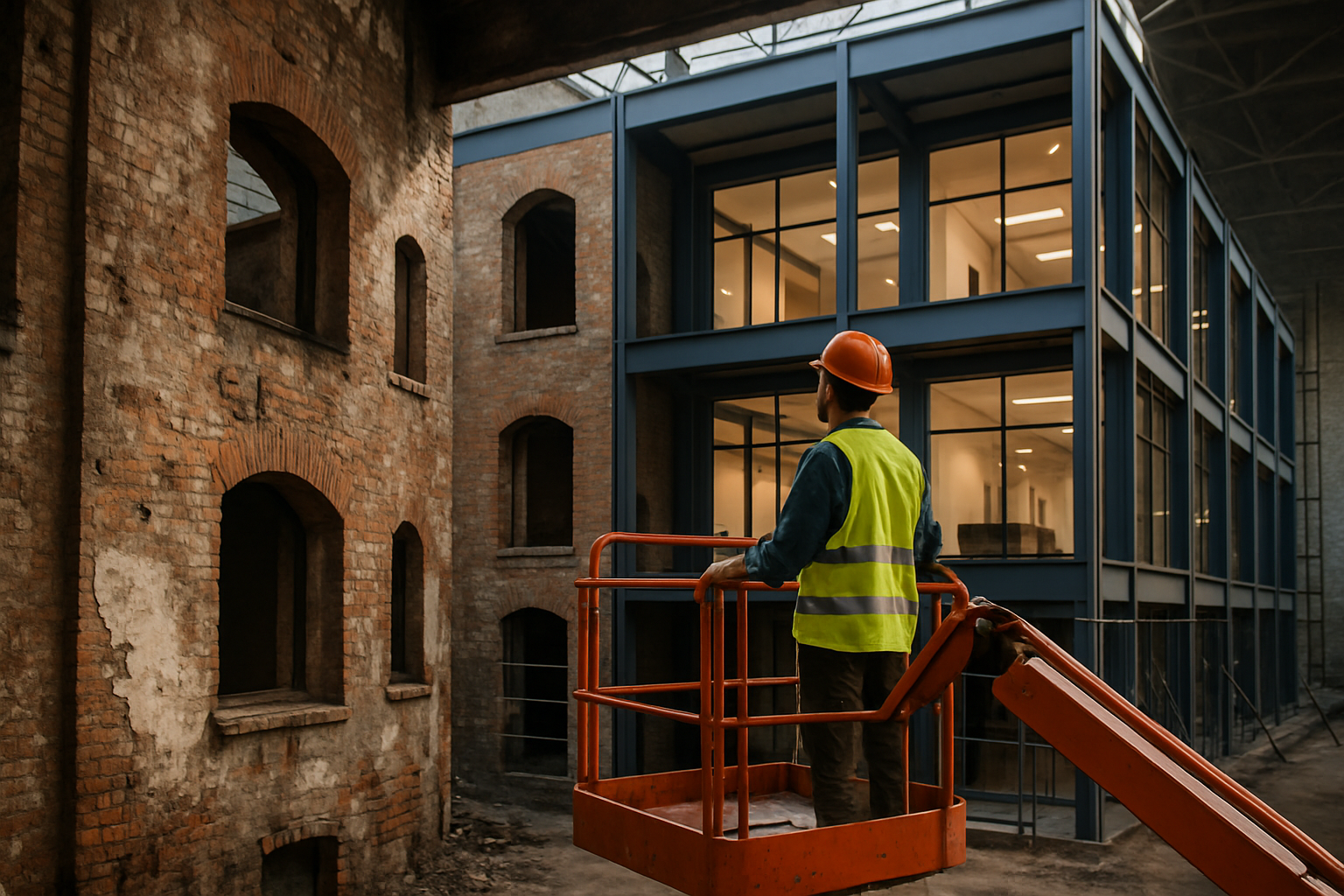Construction Jobs in Canada: What to Expect and How They Work
Many people in Canada explore construction jobs as a way to gain practical experience, enjoy flexible schedules, and earn a competitive salary. While benefits may vary, there are opportunities for different skill levels and work arrangements. Learn what to expect and how others approach these roles. Discover more in this article.

What types of construction jobs are available in Canada?
The Canadian construction sector encompasses a wide variety of roles, catering to different skill levels and interests. Some common positions include:
-
Carpenters: Responsible for building, installing, and repairing structures made of wood and other materials.
-
Electricians: Install, maintain, and repair electrical systems in buildings and infrastructure.
-
Plumbers: Work on water supply, drainage, and heating systems in residential and commercial structures.
-
Heavy equipment operators: Operate machinery such as excavators, bulldozers, and cranes.
-
Construction managers: Oversee projects, coordinate workers, and ensure timely completion.
-
Laborers: Perform various tasks on construction sites, often assisting skilled tradespeople.
These roles represent just a fraction of the opportunities available in the Canadian construction industry, with many specialized positions existing within each category.
What qualifications are needed for construction jobs in Canada?
The qualifications required for construction jobs in Canada vary depending on the specific role and level of expertise. Here’s a general overview:
-
Entry-level positions: Many laborer jobs require minimal formal education, often just a high school diploma or equivalent. On-the-job training is typically provided.
-
Skilled trades: Most skilled trades require completion of an apprenticeship program, which combines classroom learning with hands-on experience. These programs usually take 3-5 years to complete.
-
Management roles: Construction managers often need a bachelor’s degree in construction management, engineering, or a related field, along with several years of industry experience.
-
Certifications: Depending on the province and specific job, certain certifications may be required. For example, many construction workers need to complete safety training courses.
-
Language skills: Proficiency in English or French is typically necessary, with some jobs requiring bilingualism.
It’s important to note that requirements can vary by province, so it’s advisable to check with local authorities or professional associations for specific details.
How do construction jobs in Canada typically pay?
Construction jobs in Canada often offer competitive pay, with rates varying based on factors such as experience, location, and specific trade. Here’s a general overview of potential earnings:
-
Entry-level laborers: Can expect to earn around $15-$20 per hour to start.
-
Skilled tradespeople: Experienced workers in trades like carpentry, plumbing, or electrical work can earn $30-$50 per hour or more.
-
Construction managers: Salaries typically range from $70,000 to $120,000 per year, with some experienced managers earning even more.
Many construction jobs also offer opportunities for overtime pay, which can significantly increase overall earnings. Additionally, union jobs often provide higher wages and better benefits compared to non-union positions.
Prices, rates, or cost estimates mentioned in this article are based on the latest available information but may change over time. Independent research is advised before making financial decisions.
What are the working conditions like in Canadian construction?
Working conditions in Canadian construction can vary widely depending on the specific job and location. Here are some general aspects to consider:
-
Physical demands: Many construction jobs involve heavy lifting, prolonged standing, and working in various weather conditions.
-
Safety measures: Canada has strict safety regulations for construction sites, with mandatory safety training and equipment use.
-
Work hours: While standard 40-hour workweeks are common, many projects require overtime or shift work, especially during peak seasons.
-
Seasonal fluctuations: In some regions, construction work may slow down during winter months, affecting job availability and income.
-
Travel: Some jobs may require travel to different job sites or even relocating for long-term projects.
-
Team environment: Construction often involves working closely with others, requiring good communication and teamwork skills.
What unique opportunities exist in Canadian construction?
The Canadian construction industry offers several unique opportunities and advantages:
-
Green building initiatives: Canada is at the forefront of sustainable construction, providing opportunities to work on environmentally friendly projects.
-
Infrastructure development: Ongoing investments in public infrastructure create steady demand for construction workers across the country.
-
Technological advancements: The industry is increasingly adopting new technologies like Building Information Modeling (BIM) and drone surveying, offering opportunities to develop cutting-edge skills.
-
Apprenticeship programs: Canada’s well-structured apprenticeship system provides a clear path for career development in the trades.
-
Cultural diversity: The multicultural nature of Canadian society is reflected in the construction industry, creating an inclusive work environment.
How can one build a successful career in Canadian construction?
Building a successful career in Canadian construction involves several key strategies:
-
Continuous learning: Stay updated with industry trends and technologies through ongoing training and certifications.
-
Networking: Join professional associations and attend industry events to build connections and learn about job opportunities.
-
Develop soft skills: Enhance communication, problem-solving, and leadership skills to progress into management roles.
-
Gain diverse experience: Work on various types of projects to broaden your skill set and increase employability.
-
Consider specialization: Focusing on a niche area, such as heritage restoration or sustainable building, can lead to higher-paying opportunities.
-
Embrace technology: Familiarize yourself with digital tools and software used in modern construction management.
By combining these strategies with hard work and dedication, individuals can build rewarding and lucrative careers in Canada’s dynamic construction industry.




